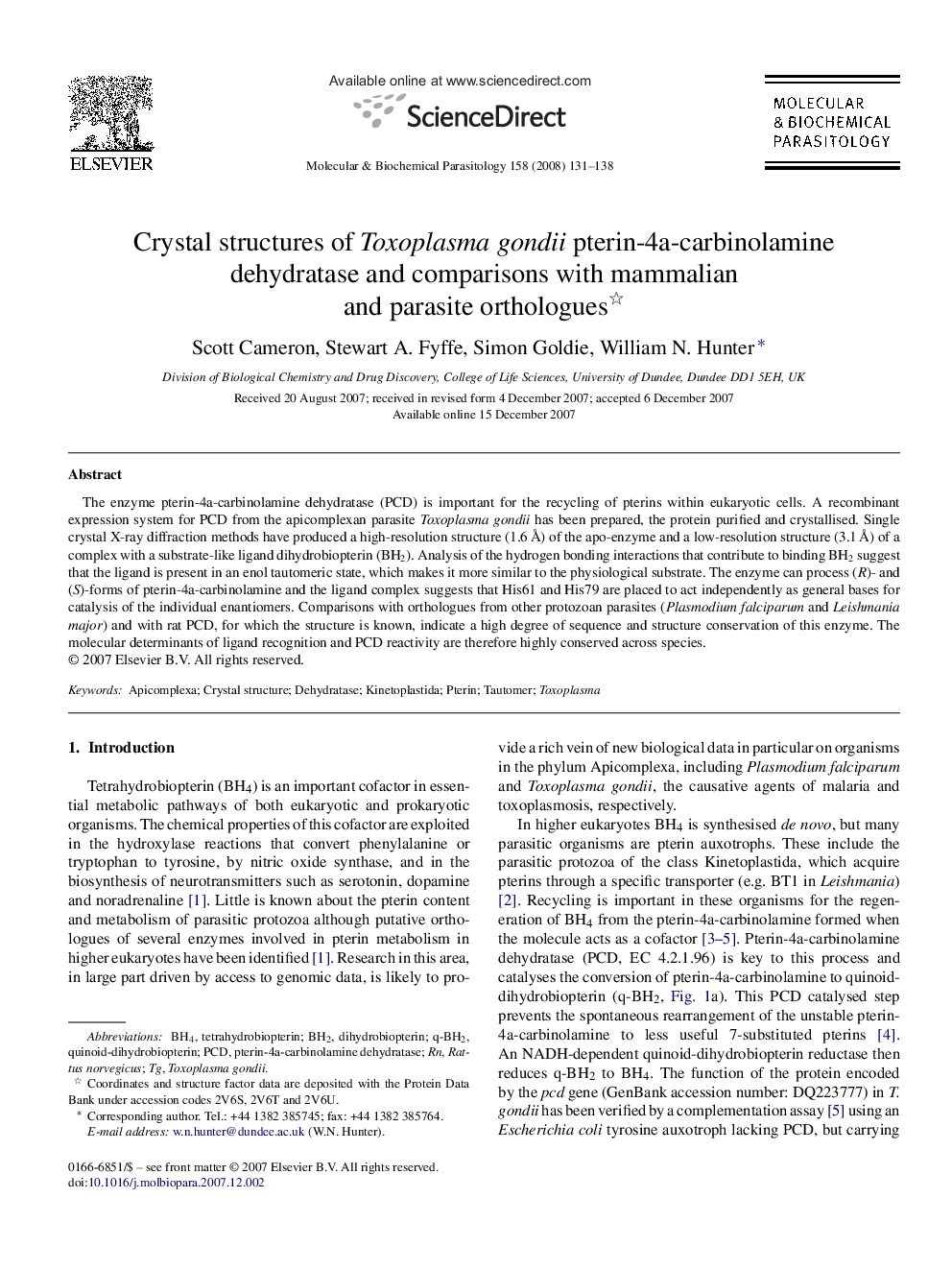| Article ID | Journal | Published Year | Pages | File Type |
|---|---|---|---|---|
| 2830211 | Molecular and Biochemical Parasitology | 2008 | 8 Pages |
Abstract
The enzyme pterin-4a-carbinolamine dehydratase (PCD) is important for the recycling of pterins within eukaryotic cells. A recombinant expression system for PCD from the apicomplexan parasite Toxoplasma gondii has been prepared, the protein purified and crystallised. Single crystal X-ray diffraction methods have produced a high-resolution structure (1.6Â Ã
) of the apo-enzyme and a low-resolution structure (3.1Â Ã
) of a complex with a substrate-like ligand dihydrobiopterin (BH2). Analysis of the hydrogen bonding interactions that contribute to binding BH2 suggest that the ligand is present in an enol tautomeric state, which makes it more similar to the physiological substrate. The enzyme can process (R)- and (S)-forms of pterin-4a-carbinolamine and the ligand complex suggests that His61 and His79 are placed to act independently as general bases for catalysis of the individual enantiomers. Comparisons with orthologues from other protozoan parasites (Plasmodium falciparum and Leishmania major) and with rat PCD, for which the structure is known, indicate a high degree of sequence and structure conservation of this enzyme. The molecular determinants of ligand recognition and PCD reactivity are therefore highly conserved across species.
Keywords
Related Topics
Life Sciences
Biochemistry, Genetics and Molecular Biology
Molecular Biology
Authors
Scott Cameron, Stewart A. Fyffe, Simon Goldie, William N. Hunter,
